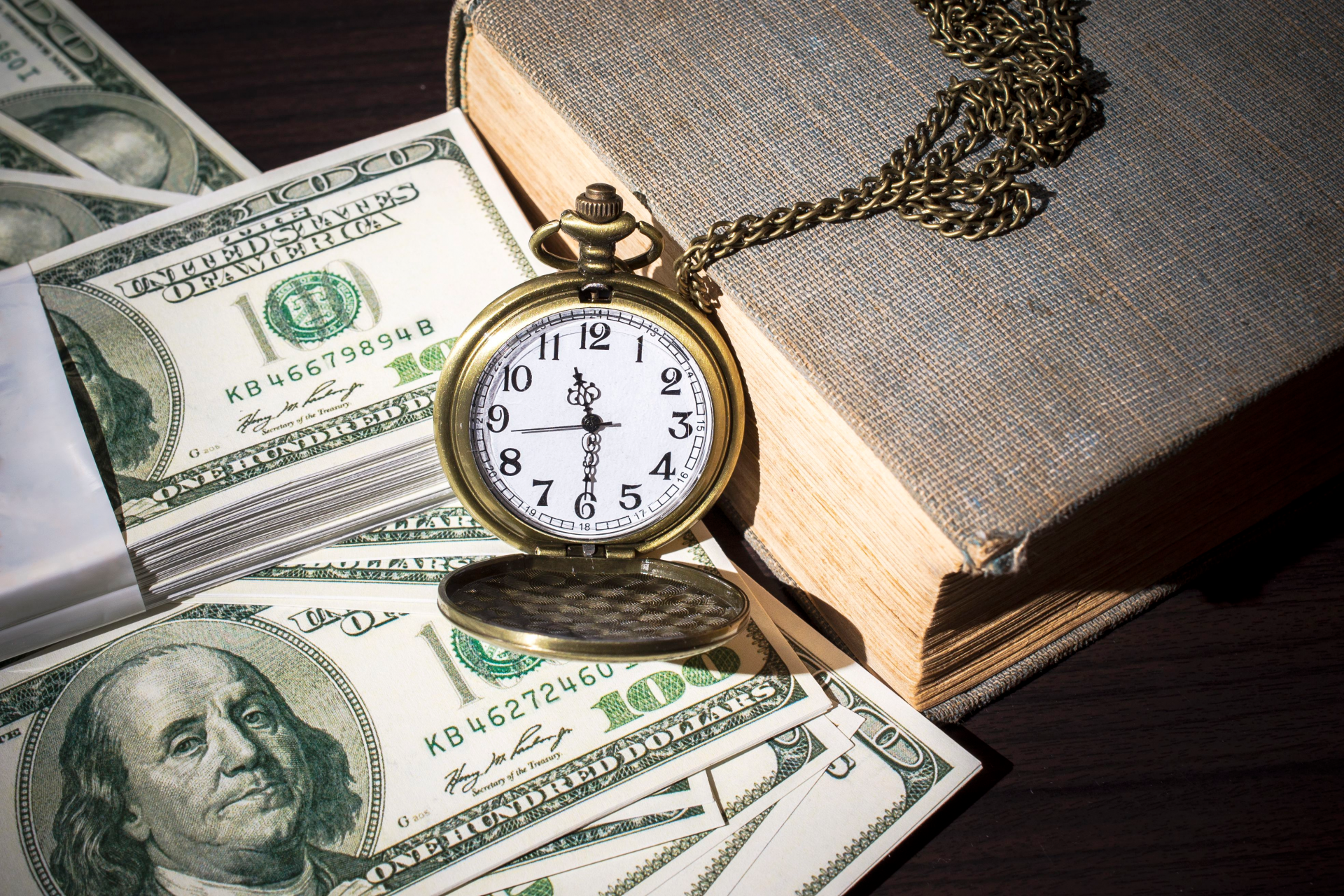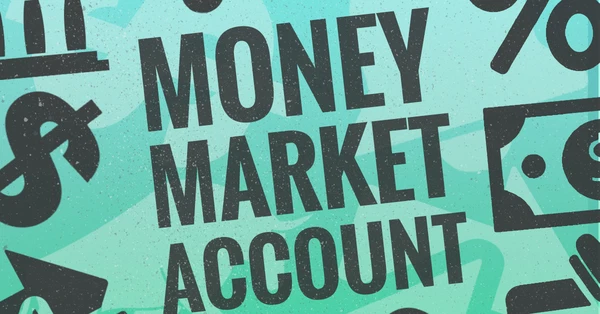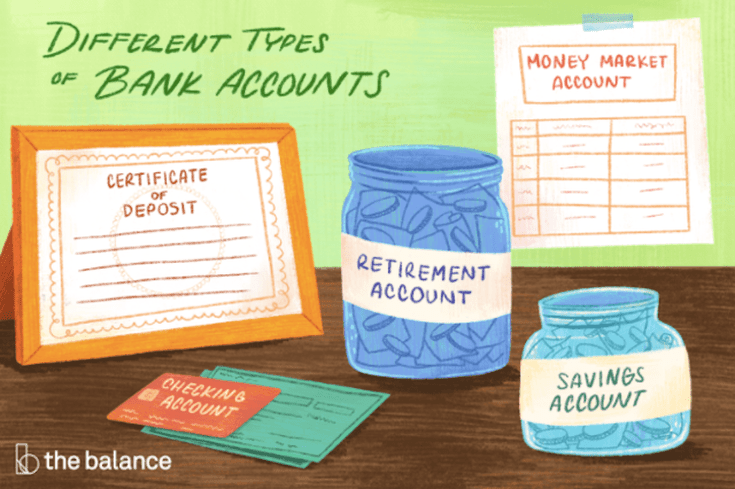What Is A Money Market Account?
 |
| What Is A Money Market Account? Photo: The Balance |
Everyone will want to know where they put their money into, as it is an important thing to care about especially if they want to save money. If you have heard of a money market account and do not know what it means, this article will help you understand more, what is a money market account, the pros and cons, and what is right for you.
Money Market Account: Definition
 |
| Photo: VietnamBiz |
Despite its name, a money market account (MMA) has nothing to do with the stock market. An MMA is defined as a unique savings account that generally earns you a higher savings rate than traditional savings accounts and offers some check-writing options. However, Capital One® 360 Money Market® accounts don’t come with checks.
Also, with the higher savings return benefits of a money market account, there may be certain restrictions. Often, MMA savings can require a higher minimum balance than traditional savings accounts.1 Capital One 360 Money Market accounts don’t require a minimum balance to open or maintain an account—you only need a higher minimum balance to earn the higher rate.
Money market deposit accounts also provide federal insurance protection. Money market mutual funds generally do not. Money market accounts at a bank are insured by the Federal Deposit Insurance Corporation (FDIC), an independent agency of the federal government. The FDIC covers certain types of accounts, including MMAs, up to $250,000 per depositor per bank. If the depositor has other insurable accounts at the same bank (checking, savings, certificate of deposit), they all count toward the $250,000 insurance limit.
History of Money Market Funds
The Depository Institutions Deregulation and Monetary Control Act of 1980 set in motion a series of steps, designed to phase in the deregulation of bank deposits, permitting a wider variety of account types, and eventually eliminating interest ceilings on deposits. By the subsequent Garn-St. Germain Depository Institutions Act of 1982, on December 14, 1982, money market accounts were authorized with a minimum balance of no less than $2,500, no interest ceiling, and no minimum maturity, allowing up to six transfers out of the account per month (no more than three by check) and unlimited withdrawals by mail, messenger, or in person. Minimum denominations were eliminated on January 1, 1986, and the limitation that no more than three of the maximum six-monthly outward transfers could be by check was eliminated on May 3, 1988.
What are the Pros and Cons of MMA?
 |
| Photo: Getty Images |
Pros
1. You’ll earn higher interest on your money
Money market accounts tend to have higher interest rates than checking or savings accounts. The national average rate for money market accounts with deposits smaller than $100,000 was 0.06% in mid-March 2021, according to the Federal Reserve. But rates can be even higher if you choose to open a money market account at an online bank. For example, Ally Bank offers 0.50% and Brio Direct offered 0.60% on their money market accounts as of March 2021.
2. Money market accounts are insured
Just like a savings account, the funds in your money market are insured as long as you’re doing business with a bank that’s insured by the FDIC or a credit union insured by the NCUA. Each account type is insured for up to $250,000 per depositor, each insured financial institution. That means that if the bank or credit union goes under, you’ll get your money back up to the insured amount.
3. You can write a few checks here and there
Money market accounts, like checking accounts, allow you to write checks. But unlike checking accounts, money market accounts limit you to only six transactions a month — transferring money from one account to another, debit purchases, bill pay, and checks all count as transactions. And just a note: Don’t confuse a money market account with a money market fund, which is a low-risk investment fund that is not covered by the FDIC.
 |
| Photo: The Balance |
Cons
1. You have to maintain a minimum balance
The first downside is that you might not have enough cash to open a money market account since some banks require a large initial deposit to open one or to earn the interest you’d like. Beyond the opening-deposit requirements, you may also need to maintain a certain balance in the account at all times in order to earn the best interest or avoid fees.
Basically, if you’re actively working on other financial goals that make it hard to gather up all that money, a money market account may not be for you.
2. You get dinged with fees for dipping below the minimum balance
Once you get together enough for a minimum balance, you have to make sure your money market account stays above that threshold. If you dip below a minimum balance requirement, you may get hit with a maintenance fee that pretty much cancels out the higher interest.
3. You only get six transactions each month or account cycle
Transactions can include certain types of withdrawals, transfers between accounts, debit purchases, and check payments. Anything beyond the six and you may face a penalty. For example, Ally Bank charges $10 for each additional transaction and US Bank charges $15.
Money Market Fund vs. Savings Account: What’s the Difference?
What is a savings account?
A savings account is the most basic type of bank account designed for storing your savings.
When you open a savings account, you’ll deposit some money into the account. You can add money and withdraw money as you need to, but you won’t get a checkbook to access the money. Instead, you’ll have to rely on online transfers or make withdrawals in person at your bank. Some banks will let you make ATM withdrawals if you have a debit card linked to a checking account.
Typically, banks limit the number of withdrawals you can make from your savings account to six each statement period. Going over the limit can result in a fee, emphasizing how the account is designed for longer-term storage of your money rather than frequent transactions.
In exchange for letting the bank hold your money, the bank will pay interest on the balance of your savings account. With each statement, the bank will make an interest payment into your savings account, helping your balance grow.
Some banks have minimum balance requirements and charge fees for their savings accounts. Keep an eye out for these types of fees as they can reduce the value of your savings over time, according to Bankrate.
Money market account vs. savings account
The primary differences between money market accounts and savings accounts are their flexibility and fee structures.
Savings accounts are relatively flexible but usually don’t come with checkbooks and debit cards like money market accounts. Money market accounts are explicitly designed to give account holders an easy way to spend the money in the account. Savings accounts are not as flexible, and you need to take a few extra steps to spend money that you have in the account.
The other difference is that savings accounts are generally much easier and less expensive to open. Many savings accounts have no or low minimum balances and fees that range from easy to avoid to non-existent. Many money market accounts have much higher minimum balance requirements and monthly fees. This makes them more popular with people who have larger balances and who want the flexibility to make large purchases.
Money Market Account vs Checking Account: What’s The Difference?
 |
| Photo: Getty Images |
What Is a Checking Account?
A checking account is a deposit account held at a financial institution that allows withdrawals and deposits. Also called demand accounts or transactional accounts, checking accounts are very liquid and can be accessed using checks, automated teller machines, and electronic debits, among other methods. A checking account differs from other bank accounts in that it often allows for numerous withdrawals and unlimited deposits, whereas savings accounts sometimes limit both.
Money Market Account benefits
You want to keep your funds liquid. If you’re thinking money market account or checking account, know that a checking account is built for very regular access to your funds. Think rent, cable, utilities, groceries, gas, maybe that morning caffeine craving. You get the idea.
You want to earn rewards for your spending. When you’re comparing money market account vs. checking accounts, consider that with some checking accounts, you can earn cashback for your debit card purchases. The best part is you are earning cashback as you keep up with your regular expenses—no hoops to jump through or extra account activity needed. Then put that cashback toward fun things like date night, lunch at your favorite spot, or a savings fund dedicated to something special.
You want to deposit and withdraw without the stress of a balance requirement. If you do your research when comparing money market accounts vs. checking accounts, you’ll find that some checking accounts don’t require a minimum balance (or much of one). However, you may be required to maintain a minimum balance (and potentially a higher one) with a money market account in order to avoid a fee. If you’re accessing your money frequently and need to make large withdrawals, a checking account with no minimum balance requirement is a convenient option.
Checking Account benefits
You want to put short-term savings in a different account. If you have some short-term savings goals in mind (way to go!), you may benefit from keeping your savings separate from your more transactional checking account so you don’t dip into them for a different purpose. That whole out of sight, out of mind thing. “A money market account is a perfect place for money that will be accessed less frequently, such as an emergency fund [a.k.a. rainy day fund], a vacation fund, or a place to park money after you’ve received an inheritance or proceeds from selling a home,” Emanuel says.
You need an account to fund your overdraft protection. If you’re comparing a money market account vs. a checking account, consider that a money market account could also cross over to support spending goals. One way is in the form of overdraft protection. If you enroll in overdraft protection for your checking account, for example, you could designate that funds be pulled from your money market account to cover a balance shortfall, according to Discover.
Money Market Account vs CD: What’s The Difference?
 |
| Photo: Fox Business |
What is a CD?
A certificate of deposit (CD) is an account that you can use to save money for a set period of time.
When you open a CD, you have to decide how much money to put in the account and how long you want to keep the money in the account. For example, you may choose to open a one-year CD. CD terms can range from a few months to five years or longer.
Once the account is open, you cannot withdraw your money until the chosen amount of time passes. If you do, you usually have to pay a penalty fee. In exchange for this loss in flexibility, banks tend to offer higher interest rates on CDs than on other accounts.
Most CDs offer fixed rates throughout their term. Once you lock in your interest rate, it won’t change, making CDs good for savers who want a guarantee that their interest rate won’t drop. However, if market rates rise, the money in the CD will be stuck at a lower rate, which can make long-term CDs a risk.
Money market account vs. CD
A money market account differs from a CD in that it has to check account features. For instance, you can usually write checks from it. You may also get a debit card. Additionally, a CD is a time deposit account, while a money market account isn’t.
Typically, a money market account pays less than a CD because a CD requires you to keep your cash in the account for a set period of time. Some of the top money market accounts earn up to 0.60 APY, according to Bankrate, while some three-year CDs pay up to 1 percent. Money market accounts with higher yields typically require you to maintain a higher balance, according to Investopedia.
Top Alternatives to Money Market Mutual Funds
High-Yield Savings Account
Savings accounts generally pay fairly low interest, especially when compared to other options on the list, but there are banking services that specialize in offering high-yield accounts.
These accounts are also easy to open and convenient to use. Banks often have low minimums to open an account. You'll have instant access to your funds, and you can access those funds in a variety of ways, such as through an app, at an ATM, or, in the case of brick-and-mortar banks, at your local bank branch.
When it comes to safety, your money can't be safer than it is in a savings account. Your savings account deposits are fully insured up to $250,000 per institution. Even if your bank goes out of business and shuts its doors, your money should be safe.
Money Market Deposit Account
Although people often get the two accounts confused, a money market deposit account works differently than a money market mutual fund. A money market deposit account, typically offered by banks and credit unions, more closely resembles a savings account.
Certificates of Deposit
Certificates of deposit (CDs) are fixed-income investments that involve depositing, or "lending" money to the issuing bank for a predetermined length of time in exchange for a fixed yield—typically between three months and 10 years.2 In general, the longer you are willing to lock up your money, the higher the interest rate you'll receive. Once the predetermined time has passed, you'll receive your money back along with the yield earned during the lifetime of the CD.
Passbook Savings Accounts
Unlike money market accounts, regular savings accounts typically have no initial deposit or minimum balance requirements. They also pay interest, although usually not as much as a money market account. Like money market accounts, passbook savings accounts are FDIC- or NCUA-insured.
Rewards Checking Account
This type of checking account may offer a sign-up bonus and other rewards, such as high yields, ATM fee reimbursements, airline miles, or cash back. The main downside is similar to high-yield checking: high fees unless the depositor satisfies all the rules, which vary by the institution. Otherwise, rewards checking functions like a regular checking account, including FDIC or NCUA insurance.
How do I choose the best money market account?
Most major banks and many credit unions offer money market accounts, but they’re not all the same.9 The first thing to consider is the savings rate. As you’ve seen, a higher savings rate can earn you more money. However, you should also consider any promotions a bank may offer. Many banks will provide a cash bonus when you open a new account. This bonus could mean that your return could be greater than what you could earn in the first year with any other interest rate on the market on its own.
Next, you’ll want to find out if there are fees and how these fees might affect your savings. Some accounts are free as long as you maintain the minimum balance, but it’s always a good idea to check the fine print.
Finally, you should understand how much you can afford to save. You want to ensure you have enough money available for your day-to-day spending. When you research the minimum balance requirements and transaction restrictions, you want to know you can comfortably afford to meet the conditions on a regular basis.
Should I open a money market account?As you consider whether or not a money market account is right for you, it helps to keep in mind these things: If you usually just keep your savings for a rainy-day fund, a money market account is a great way to earn interest on the money you already have. If you're inclined to make frequent withdrawals, a checking account might be a better option. If you can't afford the minimum balance, a traditional savings account may suit you better. If you'd like to have some accessible savings, rather than locking your money away in a CD, a money market account could be a good way to achieve that while still earning interest. If you already have the minimum balance needed to take advantage of higher interest sitting in another savings or checking account, it might be time to open a money market account. Either way, there are advantages of money market accounts as well as savings accounts, so the right one for you completely depends on your situation. And as you consider your circumstances and available options, keep in mind that your money management skills are growing as well as your savings. Does a Money Market account have a monthly service charge?In most cases, Money Market accounts do have monthly service charges. Again, this varies from bank to bank, and some financial institutions may offer you ways to avoid paying a monthly service fee, such as maintaining a certain minimum balance or having a direct deposit made into your account. Do Money Market accounts have time limits or terms?No. You can keep your Money Market account open for as long as you wish. Can I overdraw a Money Market account?Yes, and if you do, you could be charged overdraft fees. However, these days most banks offer customers free online and mobile banking, which makes it easier to closely monitor accounts and avoid overdrafts. For example, most mobile and online banking services allow you to set up alerts so you'll be notified if your account balance falls below a certain amount. |
Money Market Interest Rates
Because the money market is dependent on highly liquid assets, these investments are fairly safe and come with low risk. That means they are also characterized with a fairly low interest rate compared to other investments.
Money Market Account Rates
Financial institutions have fewer restrictions on how they can invest the funds deposited into savings accounts. These rates are much lower because the money is lent out to other consumers in the form of loans and credit cards, which are much riskier investments.
Money market accounts, on the other hand, work a little differently. Banks invest deposited funds in short-term securities including certificates of deposit (CDs), municipal bonds, and Treasury notes (T-notes). This usually provides investors with higher interest rates than traditional savings accounts. Interest is generally calculated on a daily basis and is paid out at the end of each month directly into the account.
Money Market Fund Rates
Unlike other mutual funds, money market mutual funds are subject to lower interest rates because of the underlying assets. These, as noted above, have much shorter maturity dates and much lower risk. Returns from these instruments are dependent on the applicable market interest rates, and therefore the overall returns from money market funds are also dependent on interest rates. So, the lower the rate set by the Fed, the lower the rate a money market fund pays to its investors.
Best money market accounts and rates for November 2021, according to Bankrate
Highest Rate: BrioDirect - 0.55% APY
Highest Rate: Vio Bank - 0.55% APY
High Rate: Ally Bank - 0.50% APY
High Rate: Sallie Mae Bank - 0.50% APY
High Rate: First Internet Bank of Indiana - 0.50% APY
High Rate: Navy Federal Credit Union - 0% - 0.50% APY*
High Rate: CIT Bank - 0.45% APY
High Rate: TIAA Bank - 0.40% APY
High Rate: Synchrony Bank - 0.35% APY
High Rate: Discover Bank - 0.30% - 0.35% APY**
*Highest APY is with at least $100,000 in a Jumbo Money Market Savings Account
**$100,000 minimum balance required for the highest APY offered
 What is The Favela Stock Exchange in Brazil? What is The Favela Stock Exchange in Brazil? Brazilian favelas (or slums) have created their own stock market, which community leaders see as a mechanism to boost local firms and attract investment from ... |
 What is Christmas: History, Meaning and Tradition Around the World What is Christmas: History, Meaning and Tradition Around the World Christmas has become an annual holiday commemorating the birth of Jesus Christ, which is celebrated on December 25. Many people, however, might be curious about ... |
 What Is The Smallest Car In The World: Peel P50 What Is The Smallest Car In The World: Peel P50 Is the world’s smallest car also the continuation market’s biggest bargain? We squeeze into the ‘new’ Peel P50 microcar to find out! |
 What Is The Most Expensive Piece of Jewelry Ever Made? What Is The Most Expensive Piece of Jewelry Ever Made? Tiffany & Co. has released its most expensive piece of jewelry. How much does it cost and what special features does it own? |


























